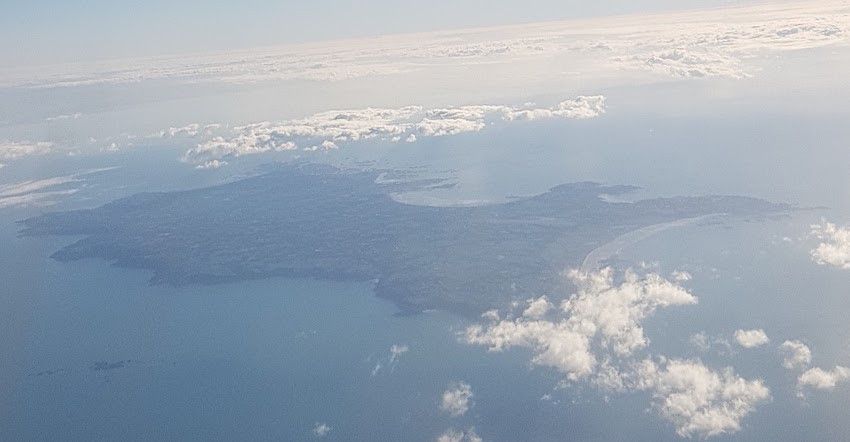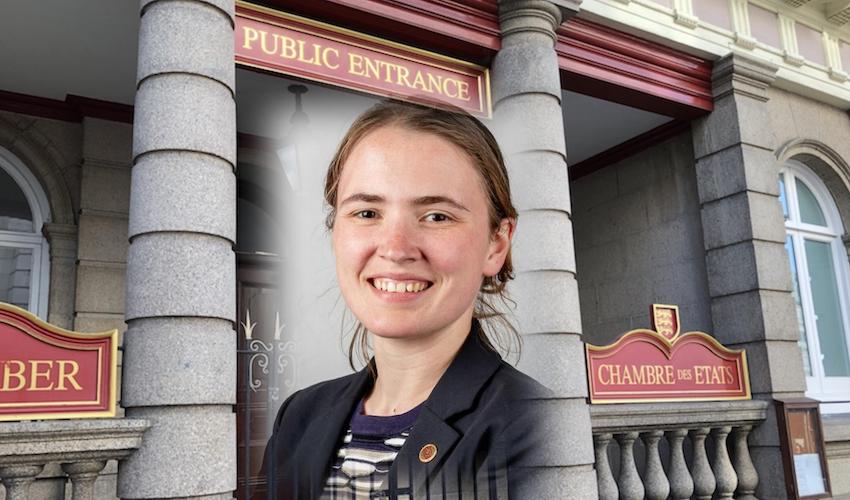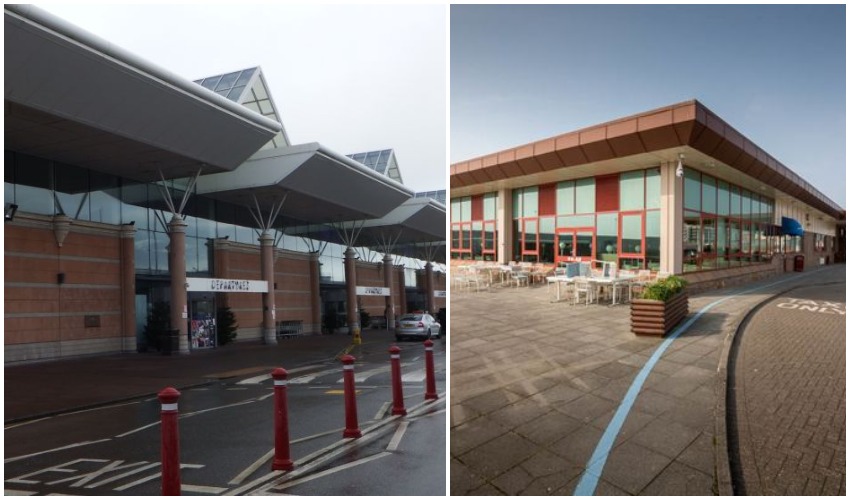


A backbench politician has put forward plans to pursue the total elimination of covid-19 in Jersey amid deepening splits between politicians, business leaders and members of the public on where the island should go next.
If Deputy Jess Perchard’s proposals are voted through next week, the government will have to draft a strategy to work towards achieving zero cases of the virus locally by early June.
It comes after a report published yesterday showed that Jersey’s ‘R’ number had dropped below one - meaning that the number of cases is soon likely to peter out - while the number of new cases in the past week has been below five.
Explaining why she had put forward the idea in a Tweet, Deputy Perchard said: “Given the groundswell of public concern about relaxing lockdown measures, I have, today, proposed that the Government implement a ‘COVID-19 elimination strategy’.
“I do not know whether this is the right course of action but want the debate.”
CLICK TO ENLARGE: How Jersey's 'R' has dropped following the introduction of different measures.
The St. Saviour representative’s proposal asks that any elimination strategy must include rapid case detection by widespread testing, continued intensive hygiene promotion, a coordinated communications strategy, “intensive physical distancing that may include various severities of lockdown”, and “border controls with high quality quarantine of those arriving in Jersey”.
In a report explaining her proposals, the Deputy said that flattening the curve without elimination could involve suppressing of economic activity for up to 18 months, whereas, “if we were to eliminate the virus locally, we could eventually see Jersey and its people experience a life that is somewhat similar to normality while we wait for a vaccine”.
Citing New Zealand as an example of a successful elimination programme, Deputy Perchard notes: “Despite mirroring the start of New Zealand’s ‘elimination’ approach, our Government’s declared ambition has been to ‘delay, contain, shield’ – not ‘eliminate’ – and we are now hearing disturbing rumours of Jersey entering into a potential ‘bubble’ with the UK, whose infection rate is alarming.”

Pictured: Deputy Jess Perchard said she would have liked to see a pan-island travel bubble - if the island first got its covid-19 numbers down to zero.
Closer to home, Guernsey is now edging towards elimination.
Having gone two weeks without any new cases, the island’s Director of Public Health Dr Nicola Brink this week confirmed the island is now looking to eliminate traces of covid-19 when she Tweeted her pleasure when patient numbers hit just eight, writing "we need to all keep up the hard work to eliminate the virus that causes covid-19 from Guernsey”.
Deputy Heidi Soulsby, Guernsey’s President of Health and Social Care, said Public Health is working on a way to confirm the virus has been eradicated locally, which could involve a set time frame of two or three weeks or longer, with no new cases detected.
However, news of the move has led to questions over whether elimination will involve a difficult trade-off: being cut off from other jurisdictions in return for ‘normality’ on the island.
Jersey is also currently grappling with the question of travel, with Medical Director Patrick Armstrong recently confirming that the concept of a ‘travel bubble’ with the UK has been considered by a senior advisory committee to government.
We are in such a great place thanks to the whole community supporting #GuernseyTogether that we can actually contemplate elimination. Wow! https://t.co/SPsB6CpcNf
— Heidi Soulsby (@HeidiSoulsby) May 13, 2020
In this week’s States Assembly meeting, Deputy Inna Gardiner asked the Chief Minister about the size of the island’s ‘internal economy’ - how much money Jersey would be able to generate were it cut off - but Senator John Le Fondré was not able to provide that information.
However, he went on to hint that Jersey wouldn’t trade off-island travel for free movement on the island.
While acknowledging that “some want to remain locked down until a vaccine arrives”, he said that this could raise ethical and human rights issues, as it could mean islanders being unable to see family abroad for an extended period of time.
He added that, in any case, the medical advice received “to date” is that it is unavoidable that the virus will spread as soon as lockdown restrictions are eased.
Part of Deputy Jess Perchard’s proposals included rigorous checks at the airport and harbour for those arriving in the island - something Ports of Jersey’s Strategy Director told Express this week is being planned - as well as quarantine.

Pictured: The Deputy wants strict border checks.
But local business guru Kevin Keen has said maintaining strict 14-day self-isolation measures for new arrivals is incompatible with easing lockdown and restarting the economy.
Jersey is currently on ‘Level Three’, where travel is only permitted with government approval for medical or compassionate reasons.
However, an answer to a written question shows that commercial travel could return by Level Two, and that quarantine will depend on the risk level in the region islanders have travelled from.
Asked by Express, government officials said more announcements on Level Two travel would be released in the coming weeks.
The elimination debate has divided islanders, with a recent Twitter poll by Deputy Kirsten Morel seeing 50 people vote in favour of Jersey maintaining a stricter lockdown to eliminate the virus over the next two to four weeks, and 28 saying that the island should continue on its current course, which may see the virus circulate again.
Deputy Perchard wrote in her elimination proposal that she sees the issue as a moral one, commenting: “Most importantly, this is an ethical issue. The Public do not want to keep hearing that ‘more people will die’. The Government have to justify the decision not to strive for elimination, given the lives it would certainly save.”
Thank you everyone for taking part in this little survey. My count shows 50 saying A and 38 - B.
— Kirsten Morel (@KirstenJersey) May 12, 2020
Clearly, it's a close call. The govt is going with B and A may not be possible but Gsy & NZ are trying it.
Next time, I'll use the proper survey function!!
Others, however, have pointed to advice from WHO Executive Director Mike Ryan, who has been quoted as saying "the virus may just become one of the viruses around the world that kill people annually".
“We have a new virus entering the human population for the first time and therefore it is very hard to predict when we will prevail over it,” he said.
“This virus just may become another endemic virus in our communities and this virus may never go away. HIV hasn’t gone away.
“I’m not comparing the two diseases, but I think it is important that we’re realistic. I don’t think anyone can predict when or if this disease will disappear.
“HIV has not gone away — but we have come to terms with the virus.”
Speaking to Express earlier this week, Jersey’s Medical Director Patrick Armstrong said the he also believed the island would be coping with covid-19 over the long-term.
However, he said that he believed the health service to be “well-prepared” for any new surges in cases, having reorganised the health service with a new Urgent Treatment Centre and given the opening of the new field hospital at Millbrook, which is being described as the Nightingale wing of the General Hospital.
Comments
Comments on this story express the views of the commentator only, not Bailiwick Publishing. We are unable to guarantee the accuracy of any of those comments.